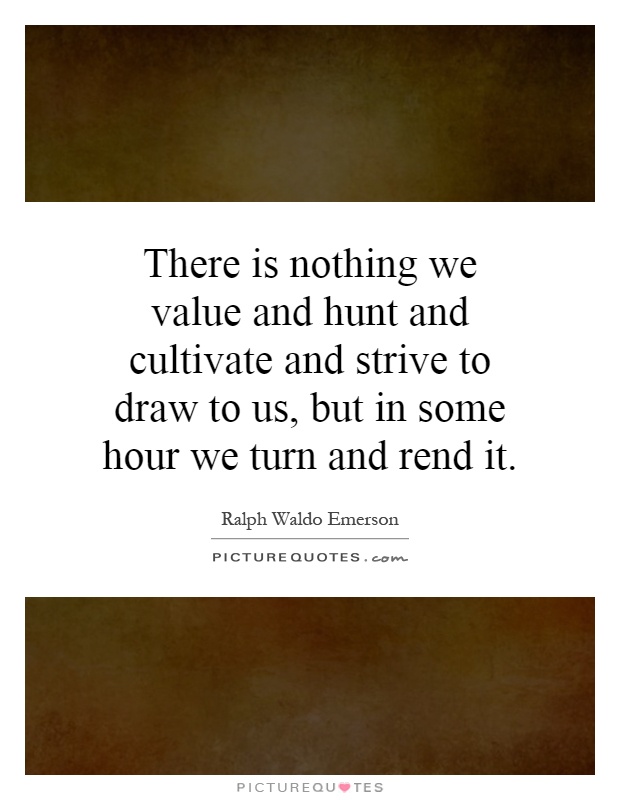There is nothing we value and hunt and cultivate and strive to draw to us, but in some hour we turn and rend it

There is nothing we value and hunt and cultivate and strive to draw to us, but in some hour we turn and rend it
Ralph Waldo Emerson, a prominent American essayist, lecturer, and poet, often explored the complexities of human nature and the inherent contradictions within our desires and actions. One of his most famous quotes, "There is nothing we value and hunt and cultivate and strive to draw to us, but in some hour we turn and rend it," encapsulates this theme perfectly.Emerson believed that humans have a tendency to pursue things that they value and desire, whether it be material possessions, relationships, or personal achievements. We invest time, effort, and energy into cultivating these things, believing that they will bring us happiness, fulfillment, and success. However, Emerson also recognized that there is a darker side to our desires and ambitions. In our pursuit of these things, we often become consumed by them, losing sight of their true value and significance. We may become possessive, greedy, or selfish, ultimately leading to their destruction or our own downfall.
Emerson's quote suggests that there is a paradoxical nature to human desires and actions. We may value something deeply and strive to attain it, only to realize that it does not bring us the satisfaction or happiness we had hoped for. In our pursuit of these things, we may become blinded by our own desires, losing sight of the bigger picture and the consequences of our actions. This can lead to a sense of disillusionment, disappointment, or even regret.
Emerson's philosophy encourages us to reflect on our desires and motivations, to question the true value of the things we pursue, and to consider the impact of our actions on ourselves and others. By recognizing the inherent contradictions within our desires and actions, we can strive to cultivate a greater sense of self-awareness, mindfulness, and empathy. Ultimately, Emerson's quote serves as a reminder that true fulfillment and happiness come from within, rather than from external sources.












 Friendship Quotes
Friendship Quotes Love Quotes
Love Quotes Life Quotes
Life Quotes Funny Quotes
Funny Quotes Motivational Quotes
Motivational Quotes Inspirational Quotes
Inspirational Quotes